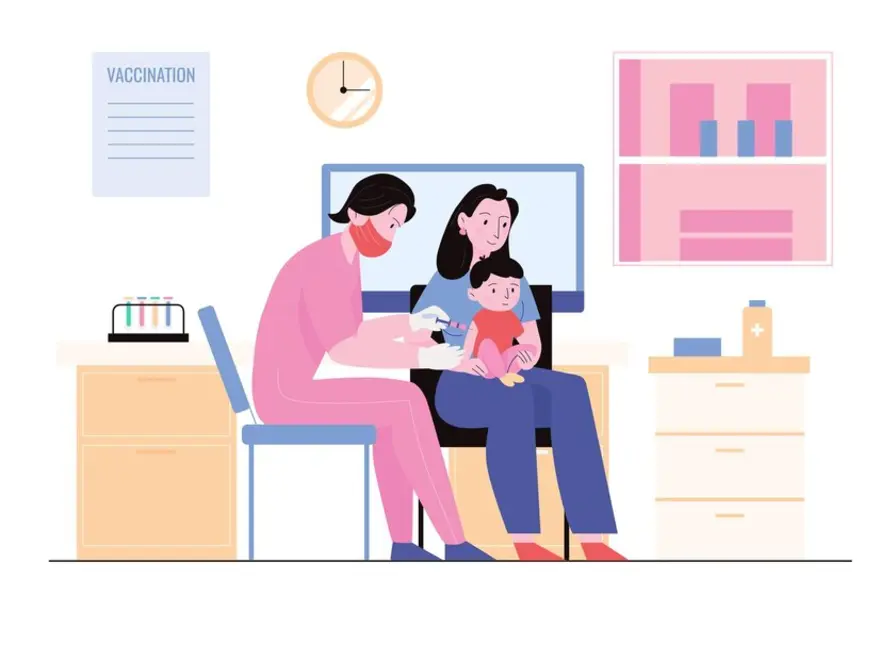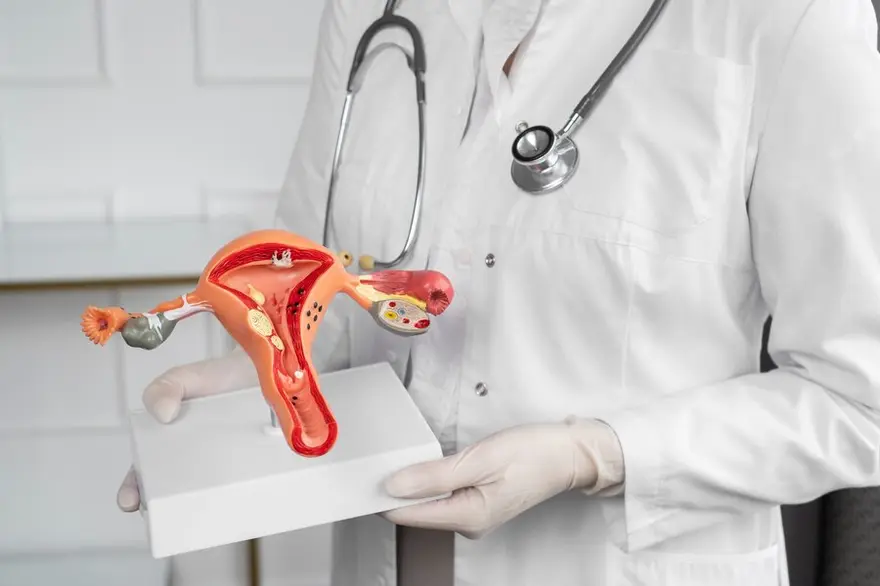Preventive Healthcare
Hypercapnia: Causes, Symptoms, and Managing Excess Carbon Dioxide in the Blood
280 Views
0

What is hypercapnia (hypercarbia)?
Hypercapnia or hypercarbia occurs when there's too much carbon dioxide in your blood. Normally, your lungs and respiratory system work together to inhale oxygen and exhale CO2. However, various health conditions can impair this process, causing CO2 to accumulate. This leads to an imbalance in your blood's pH levels, a state called respiratory acidosis.
Hypercapnia is a serious condition that requires prompt medical attention. If left untreated, it can lead to respiratory failure and even be life-threatening. That's why it's crucial to understand the signs and risk factors of hypercapnia.
What's the difference between hypercapnia and hypoxemia?
While both hypercapnia and hypoxemia are respiratory issues, they differ in their primary effects:
- Hypercapnia is characterised by elevated CO2 levels in the blood, leading to respiratory acidosis.
- Hypoxemia refers to insufficient oxygen in the blood, causing tissue oxygen deprivation.
What are the symptoms of hypercapnia (hypercarbia)?
Hypercapnia symptoms can range from mild to severe, depending on the CO2 levels in your blood. Here are some common signs to watch out for:
Mild to moderate hypercapnia:
- Headaches
- Dizziness
- Fatigue
- Shortness of breath
- Flushing of the skin
Acute hypercapnia:
- Confusion and disorientation
- Paranoia or depression
- Rapid breathing
- Muscle twitches
- Seizures
Severe hypercapnia:
- Hand tremors (asterixis)
- Muscle jerks (myoclonus)
- Irregular heartbeat
- Coma
- Respiratory failure
If you experience any of these hypercapnia symptoms, especially if you have an underlying lung or neuromuscular condition, seek immediate medical care.
What causes hypercapnia?
Various factors can impair your body's ability to remove CO2 effectively, leading to hypercapnia. Some common hypercapnia causes include:
- Chronic Obstructive Pulmonary Disease (COPD): COPD encompasses conditions like emphysema and chronic bronchitis that narrow and damage the airways, making it harder to exhale fully. This traps CO2 in the lungs, leading to hypercapnia. According to the World Health Organization, COPD affects around 65 million people worldwide and is a leading cause of death.
- Obstructive Sleep Apnea (OSA): In OSA, the upper airway collapses during sleep, causing breathing interruptions. This reduces CO2 expulsion and oxygen intake. Studies show that around 45% of people with OSA have daytime hypercapnia.
- Neuromuscular Disorders: Conditions like muscular dystrophy, ALS, or Guillain-Barré syndrome can weaken the breathing muscles, limiting their ability to inflate the lungs and remove CO2 adequately. This is called hypoventilation.
- Brainstem Injuries or Disorders: The brainstem controls breathing. Any damage or dysfunction in this area, such as from a stroke, tumour, or infection, can disrupt the breathing rate and lead to CO2 buildup.
- Sedative Overdose: Certain medications, especially opioids and benzodiazepines, can slow down breathing and cause hypercapnia if taken in excess. This is a common issue in drug overdoses.
- Obesity Hypoventilation Syndrome (OHS): In OHS, excess weight puts pressure on the chest wall, reducing lung capacity and ventilation. This causes CO2 retention, especially during sleep. Around 90% of people with OHS also have OSA.
Other potential hypercapnia causes include severe asthma attacks, chest wall deformities, hypothyroidism, and some congenital conditions. Identifying the underlying cause is crucial for effective hypercapnia treatment.
What are the risk factors for this condition?
Risk factors for hypercapnia include:
- Smoking, which increases COPD risk
- Age, as conditions like COPD often develop after 40
- Obesity, linked to sleep apnea and OHS
- Genetics, such as alpha-1-antitrypsin deficiency
- Underlying health conditions affecting lung or heart function.
What are the complications of hypercapnia?
Untreated hypercapnia symptoms can lead to severe, life-threatening complications:
- Respiratory acidosis: As CO2 builds up, it makes the blood too acidic, a condition called respiratory acidosis. This acidity throws off the body's delicate pH balance, straining the kidneys and other organs.
- Neurological effects: Acute hypercapnia can cause confusion, delirium, depression, and even coma by altering brain function.
- Respiratory failure: In severe cases, the rising CO2 levels can overwhelm the lungs' ability to maintain proper gas exchange, leading to respiratory failure - a medical emergency.
How is hypercapnia (hypercarbia) diagnosed?
Hypercapnia is diagnosed through blood tests, particularly arterial blood gas (ABG) analysis, which measures CO2 levels in the blood. A chest X-ray, pulmonary function tests, or other imaging may also be used to assess underlying conditions causing the elevated CO2.
What tests might be used?
If your doctor suspects hypercapnia based on your symptoms and medical history, they will likely recommend the following tests:
- Arterial blood gas (ABG) test: This is the gold standard which is used to diagnose hypercapnia. A small blood sample is taken from an artery, usually in the wrist, and analysed for oxygen, CO2, and pH levels. A PaCO2 higher than 45 mm Hg indicates hypercapnia.
- Pulmonary function tests (PFTs): PFTs measure how well your lungs are working. You'll breathe into a machine that records the volume and flow of air moving in and out of your lungs. PFTs can help diagnose underlying lung diseases like COPD.
- Chest X-ray or CT scan: Imaging tests provide a detailed picture of your lungs, airways, and chest wall. They can reveal signs of COPD, infections, tumours, or structural abnormalities that may be causing hypercapnia.
- Sleep study (polysomnography): If sleep apnea is suspected, you may undergo a sleep study. Sensors placed on your body will monitor your breathing, heart rate, and brain waves as you sleep, detecting any breathing disturbances.
- Your doctor may also check your oxygen saturation with a pulse oximeter and order blood tests to rule out other conditions.
These tests provide valuable information about your respiratory function and help pinpoint the cause of your hypercapnia. Your doctor will use the results to create a personalised hypercapnia treatment plan to manage your condition effectively.
How is hypercapnia (hypercarbia) treated?
The primary goal of hypercapnia treatment is to address the underlying cause while managing the excess CO2 in the blood. Some key treatment strategies include:
- Oxygen therapy: Providing supplemental oxygen can help increase the amount of oxygen in the blood. However, this must be done carefully, as too much oxygen can sometimes worsen hypercapnia in patients with chronic respiratory diseases like COPD.
- Ventilation support: Non-invasive ventilation methods like CPAP or BiPAP can help improve breathing and reduce CO2 levels. In severe cases, mechanical ventilation may be necessary.
- Medications: Bronchodilators, steroids, and antibiotics may be prescribed to manage underlying respiratory conditions and infections.
Potential side effects of treatment
While hypercapnia treatment is crucial, it's important to be aware of potential side effects:
- Oxygen therapy can sometimes lead to increased CO2 retention in COPD patients.
- Non-invasive ventilation may cause skin irritation or discomfort.
- Medications can have side effects like tremors, increased heart rate, or long-term effects like osteoporosis with prolonged steroid use.
Can you prevent hypercapnia?
Preventing hypercapnia involves managing the underlying conditions that can lead to it:
- Quit smoking
- Avoid exposure to air pollution and other lung irritants
- Maintain a healthy weight
- Regularly monitor and manage chronic respiratory conditions
What's the outlook for hypercapnia (hypercarbia)?
The prognosis for hypercapnia depends on the underlying cause and severity:
- Acute hypercapnia, if promptly treated, can be managed effectively with minimal long-term consequences. However, a delayed treatment can also cause serious complications.
- Chronic hypercapnia, often seen in conditions like COPD, may result in reduced quality of life and increased risk of hospitalisation and mortality.
- Proper management through pulmonary rehabilitation, medication, and ventilation support can improve outcomes.
How do I take care of myself?
Self-care for individuals with hypercapnia involves:
- Following the prescribed treatment plan, including medications and oxygen or ventilation support
- Engaging in regular exercise and maintaining a healthy diet
- Participating in pulmonary rehabilitation programmes
- Regularly monitoring blood gas levels and following up with healthcare providers
When to see a doctor?
Seek medical attention if you experience:
- Persistent hypercapnia symptoms like fatigue, headache, shortness of breath, or dizziness
- Severe symptoms that may indicate a medical emergency, such as confusion, rapid heartbeat, or loss of consciousness
Conclusion
Hypercapnia is a serious condition that requires prompt medical attention and ongoing management. If you suspect you or a loved one may have hypercapnia, don't hesitate to consult with a healthcare provider.
At Metropolis Healthcare, our team of experts provides reliable diagnostic services, including blood gas analysis, to help you monitor your condition and make informed health decisions. With a network of state-of-the-art labs across India and convenient at-home sample collection, Metropolis is committed to delivering accurate results and personalised care to support you on your health journey.












1701259759.webp)









 WhatsApp
WhatsApp